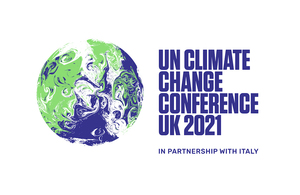Joint statement of the Zero Emission Vehicle Transition Council
News story
A joint statement from the Zero Emission Vehicle Transition Council after their first meeting to accelerate the pace of the global transition to zero emission vehicles.

For the first time, Ministers and representatives from some of the world’s largest and most progressive car markets have come together to form a new Zero Emission Vehicle Transition Council.
Hosted by the COP26 President, Alok Sharma, the Council met to discuss how to accelerate the pace of the global transition to zero emission vehicles.
These Ministers and representatives have agreed to collectively address some of the key challenges in the transition to ZEVs, enabling the transition to be faster, cheaper, and easier for all.
The Council was made up of Ministers and representatives from California, Canada, Denmark, European Commission, France, India, Italy, Japan, Mexico, Netherlands, Norway, Spain, South Korea and Sweden, the United Kingdom.
The following joint statement was released after the Council meeting.
-
A rapid global transition to zero emission vehicles is vital to meet the goals of the Paris Agreement on climate change. Road transport accounts for over 10% of global greenhouse gas emissions, and these emissions are rising. We need to dramatically increase the pace of the global transition to meet our Paris Agreement goals. This will also offer huge opportunities for jobs and growth, cleaner air, improved public health, and could also boost energy security and help balance electricity grids as we make the transition to clean power.
-
In response to this global challenge and historic opportunity, we met today as the Zero Emission Vehicles Transition Council to discuss how to increase the pace of the transition. As ministers and representatives from governments whose markets collectively account for around half of all new vehicle sales globally, we have a unique responsibility. The actions we take, in dialogue with industry, and also with businesses, cities and regions, and wider civil society, will determine the pace of the global transitions to zero emission vehicles. While our national contexts and policy approaches may differ, the transition will be faster, easier and lower cost for all if we work together.
-
We will use this forum to coordinate our efforts. We will act together to overcome strategic, political and technical barriers, accelerate the production of zero emission vehicles, and increase economies of scale. We will boost investment, bring down costs and increase the uptake of zero emission vehicles and the many economic, social and environmental benefits it brings.
-
We will explore specific opportunities for collaboration in areas including:
-
a) aligning the future of the road transport sector with Paris Agreement goals, focusing on the role of zero emission technologies and key policies, while also considering the roles of alternative technologies in the transition,
-
b) ensuring the transition to zero emission vehicles is truly global, leaving no country or region behind,
-
c) ensuring the lifecycle (from production to scrapping) of zero emission vehicles is sustainable and inclusive,
-
d) ensuring the enabling infrastructure is in place, including electric vehicle chargepoints and hydrogen vehicle re-fuelling, in the context of decarbonising the power sector and growing the hydrogen economy,
-
e) coordinating our innovation efforts.
5.As we work to recover from the Covid-19 pandemic, we recognise that the decisions we make today will be critical for laying the foundations for sustainable and inclusive growth. As such, we commit to ensuring our recovery plans support an accelerated transition to zero emission vehicles as part of broader efforts to boost growth and employment, while promoting cleaner and more sustainable economies.
Signatories:
- Alok Sharma, COP President and Secretary of State for Business, Energy and Industrial Strategy, UK
- Benny Engelbrecht, Minister of Transport, Denmark
- Jared Blumenfeld, California Secretary for Environmental Protection
- Jean-Baptiste Djebbari, Minister for Ecological Transition, France
- Kang Kyungsung, Deputy Minister, Trade and Investment, Ministry of Trade Industry and Energy, South Korea
- Marc Garneau, Minister of Transport, Canada
- Mathias Fischer, State Secretary, Ministry of Climate and Environment, Norway
- Shigehiro Tanaka, Vice-Minister for International Affairs, Japan
- Stientje van Veldhoven, State Secretary for Infrastructure & Water Management, Netherlands
- Teresa Ribera, Minister for the Ecological Transition and Demographic Challenge, Spain
- Tomas Eneroth, Minister for Infrastructure, Ministry of Infrastructure, Sweden
- Dr. Graciela Márquez Colín, Minister of Economy, Mexico
Published 27 November 2020